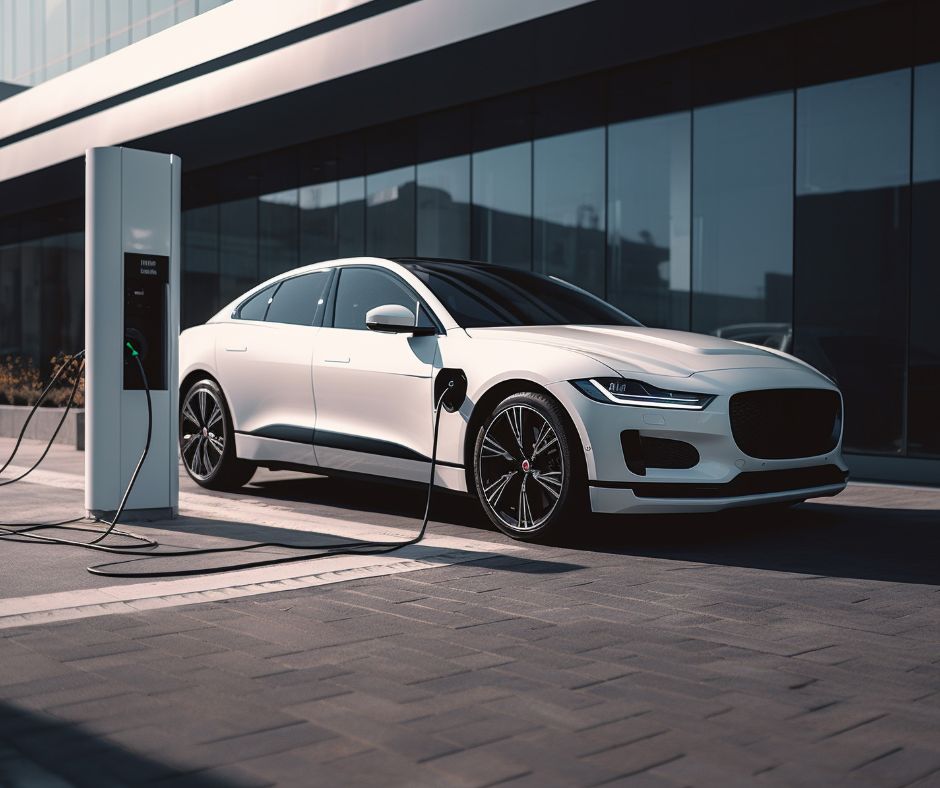Rise by Six: Your Daily Dose of Inspiration
Explore insights and stories that elevate your day.
Charge Up Your Life: The Surprising Benefits of Electric Cars
Unlock the future of driving! Discover the unexpected perks of electric cars and how they can revolutionize your life today!
Top 5 Reasons to Switch to Electric Cars Today
Switching to electric cars is becoming more than just a trend; it's a significant shift towards a sustainable future. Electric cars emit zero tailpipe emissions, which significantly helps in reducing air pollution and enhancing the quality of our environment. Especially in urban areas where air quality is a growing concern, adopting electric vehicles can lead to cleaner streets and healthier communities.
Moreover, the cost savings associated with electric vehicles are substantial. Overall, electric cars have lower operating costs compared to traditional gasoline-powered vehicles. With fewer moving parts, less maintenance is required, and the cost of electricity for charging is often significantly lower than gasoline prices. Additionally, many countries offer incentives and tax breaks for electric vehicle owners, making the switch even more financially appealing.

How Electric Cars Can Save You Money Long-Term
Investing in electric cars can significantly reduce your overall transportation costs due to their lower operating expenses. Unlike traditional gasoline-powered vehicles, electric cars require less maintenance since they have fewer moving parts. In fact, studies show that routine maintenance costs can be reduced by up to 30% or more. Additionally, electricity is often cheaper than gasoline, meaning that over time, the savings on fuel can accumulate substantially. If you drive an EV for an average distance, you can expect to save thousands of dollars on fuel costs alone.
Moreover, many governments offer substantial incentives to encourage the adoption of electric vehicles. These can include tax credits, rebates, and even grants for purchasing an electric car, which can significantly lower the initial purchase price. Furthermore, some regions have introduced lower tolls, reduced registration fees, and access to carpool lanes, all of which contribute to long-term savings. So, not only can electric cars save you money on fuel and maintenance, but they also unlock financial benefits that further enhance their appeal as a cost-effective transportation solution.
Are Electric Cars Really Better for the Environment?
The debate over whether electric cars are truly better for the environment encompasses various factors, including manufacturing processes, energy sources, and lifecycle assessments. While it is widely acknowledged that electric vehicles (EVs) produce zero tailpipe emissions, the environmental impact of their production and the source of the electricity they use can complicate the narrative. For instance, the production of batteries for electric cars often involves mining for lithium, cobalt, and nickel, resources that can have detrimental effects on local ecosystems and communities. Additionally, if the electricity that powers these vehicles comes from fossil fuels, the benefits of driving an EV may be undermined, effectively converting tailpipe emissions into power plant emissions.
Moreover, it's essential to consider the lifecycle assessment of electric vehicles compared to traditional gasoline-powered cars. According to studies, electric cars generally result in lower greenhouse gas emissions over their lifetime, especially when charged using renewable energy sources like solar or wind. As technology advances, battery recycling processes are improving, further mitigating the initial environmental impact of battery production. Ultimately, while electric cars offer significant advantages in reducing urban air pollution and greenhouse gas emissions, their overall environmental benefits hinge on sustainable practices in battery production, electricity generation, and advancements in recycling technology.